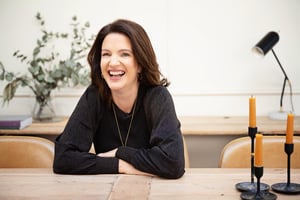Embracing the Coaching Journey: My Personal Story
What is the Optimus Holistic Coaching Framework All About?
Before I started Optimus Coach Academy I had a very clear vision : I wanted to create a training program that integrated Psychology and Neuroscience and was practical. I'd had some interesting training experiences when I came into coaching and I'd recognised that many focused on transactional conversations which for me lacked depth and others were very theory based which felt removed from coaching.
Over the last 6 years that curriculum has evolved although the vision has stayed consistent : we recognised that quickly other providers were using the Psychology tag (maybe some already were) and we wanted to be clear about what we were about.. the holistic coaching framework was born.
Client centred approaches
One of the things which I've found challenging in the past is that models can seem like something we do to a client rather than having the client at the heart. This is why one of the core of the holistic framework is the client: the domains that you explore with the client are based on their preferences and what they are bringing rather than having to go through a series of stages this is much more about what the client needs and having the skill to switch between domains to ensure the client is able to get new insight which help them change the way they think, feel and act.
At its heart the Optimus Holistic Coaching Framework recognises that humans are complex, integrated beings. A key premise of Psychology is individual differences which is why choice and flexibility are at the heart of what we believe : there is evidence this also makes for the most effective coaching sessions. This framework draws on evidence-based practices from Psychology, Neuroscience and somatic coaching to help clients create meaningful and lasting change across all areas of life.
What Is the Optimus Holistic Coaching Framework™?
The Optimus Holistic Coaching Framework™ is built upon six interconnected pillars. You may explore 2, 3, 4 or all 6 with a client in a session.
These pillars are:
- Brain: This pillar explores the neuroscience behind coaching so you'll understand how coaching works and how to support clients to get deeper insights, build more effective relationships and make better decisions.
- Emotions: This pillar explores the use of emotions in coaching by supporting clients to recognise and navigate their own emotional landscapes as well as building empathy and resilience as coach.
- Body: This pillar explores the role of physical sensations and somatic experiences in coaching including exploring both the clients and the coaches intuition and understanding the nervous system and how it operates.
- Behaviour: This pillar supports the client to explore their behaviour through different lens by observing actions and habits to identify patterns and opportunities for change. Equally, it allows for the client to explore the behaviour of others and seek understanding and insight.
- Context: This pillar looks at the client's context considering the environmental, cultural, and situational factors that impact the individual. Equally, it allows the coach to reflect on their own context and how that impacts the coaching relationship.
- Identity: This pillar explores who the client is their strengths, values, beliefs and assumptions and how they see themselves as well as supporting them to consider who they want to become through the coaching process.
By addressing these six areas, coaches can tailor their approach to meet clients where they are facilitating deeper insights and more meaningful progress.
What are the benefits of using this framework?
- Client-Centred Focus: By considering the full spectrum of a client's experience and exploring the pillars coaching becomes more personalised, flexible and effective.
- Deeper Client Relationships: Engaging with clients on multiple levels fosters trust and openness builds more effective relationships.
- Enhanced Outcomes: By exploring both the who and the what of coaching you're supporting your clients to create sustainable behaviour change.
- Comprehensive Problem-Solving: By working effectively with the brain, nervous system, emotions and intuition you support clients to make more effective decisions.
- Versatile Tools and Techniques: Coaches are equipped with a diverse set of strategies which brings flexibility and diversity in their approaches.
This holistic approach ensures that coaching is not a one-size-fits-all process but a dynamic partnership tailored to each individual's unique journey. We believe this powerful framework based on over 30 years of studying Psychology and well over 10,000 coaching hours is the key to supporting our students to become effective coaches.




.jpg?height=200&name=448941383_10169084204295623_2290318617251701746_n%20(1).jpg)